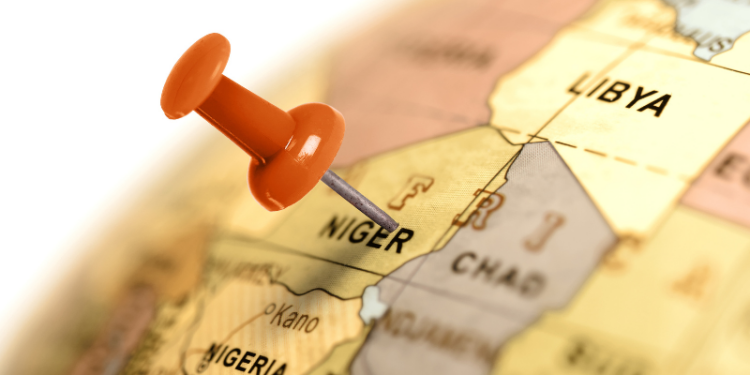The French state nuclear firm Orano announced that military authorities have seized its uranium mining operations in Niger, according to BBC articles published last week.
This marks the latest in a series of diplomatic failures in Africa for France and its leader, Emmanuel Macron. Niger’s former French-backed government, led by President Mohamed Bazoum, was ousted in July of 2023 and replaced by a military junta led by General Abdourahamane Tiani, the commander of Niger’s presidential guard.
During that time, Tiani has assumed full control of the civilian government and taken steps to further reduce France’s influence over its former colony. In December of 2023, the junta ordered the expulsion of all 1,500 French troops from the country and pivoted towards a new military alliance with neighbors Burkina Faso and Mali.
The move was not only a scathing rebuke of France’s continued presence in West Africa, but a signal to countries like Russia and China that there will be a new need for foreign investment and security assistance.
China has played an outsized role in Niger’s economy since 2011 when it partnered with the government to develop the Agadem oil fields near the country’s eastern border. Though its exports are minuscule in comparison to the world’s top oil producers, Niger has nevertheless gained a significant boost to its GDP and has grown increasingly close with China, to whom most of its oil is sold.
Russia has become a similarly important partner to Niger as well. Russian troops and military personnel were deployed to Niger’s capital in April of 2023, only a few months before the expulsion of French troops, and have maintained their presence there since. They have yet to expand their operations in the country, as the Russian Africa Corps has been struggling to integrate the soldiers and infrastructure of its counterpart, the Wagner Group, following a failed insurrection by the group’s late leader, Yevgeny Prigozhin.
However, should Niger follow the same path as Mali or the Central African Republic, Russian security forces could become a permanent fixture, at least in the capital. Throughout Africa, many nations plagued by rebel militias have turned to the Kremlin for solutions that they say the West has failed to deliver. Though there have been reports of grave mistreatment of civilians by Wagner soldiers, this has not stopped governments from relying on them heavily to protect major cities and resource extraction operations. The Kremlin typically exacts payment for its services in the form of natural resources, like gold and other precious metals.
These developments reflect a broader trend: African nations increasingly view Russia and China as more reliable and pragmatic partners than their former colonial rulers. France’s failure to adapt its approach—clinging to outdated neo-imperialist policies—has only accelerated this. By focusing on resource extraction and military dominance without addressing the deeper needs of its partners, France has made its irrelevance painfully clear.
In contrast, China’s investments in infrastructure and Russia’s provision of security solutions, however controversial, are perceived as offering immediate and tangible benefits to African governments. This realignment has implications far beyond Niger. As France’s influence fades and new powers rise, the West risks losing its foothold on a continent that is vital not only for its resources but also for its strategic significance in global geopolitics.
What happens in Niger is part of a larger narrative: Africa is increasingly choosing partnerships that align with its interests, and the West must decide whether to compete with these new powers or be left behind.










